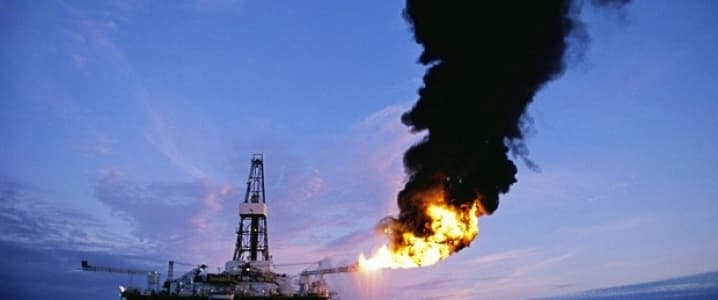Ben Van Beurden, Chief Executive Officer of Royal Dutch Shell has laid out an ambitious plan to overtake ExxonMobil as the number one oil company in the world.
Prior to the 1990s, Shell was the leader in total shareholder returns, however, its rivals went on a deal-making spree to gain the lead, while Shell shied away from making any acquisitions. Now, Mr. Beurden believes that Shell will be able to regain its lost glory post the acquisition of the BG group.
“I am determined to get us to that number one place,” Mr. Beurden said after outlining the company’s long-term strategy in London. “I want to create a world class investment case for Shell and our shareholders,” reports Bloomberg.
Shell, with a market capitalization of $216.6 billion, has a lot of catching up to do if it wants to surpass Exxon’s market capitalization of $379.5 billion.
Investors favor Exxon and give it a premium valuation if Price/Earnings, Price/Book or a few other metrics are considered. The reason for higher valuation is the confidence that Exxon is in a better position to tide itself over the current downturn in oil prices, and the fact that it is a better-managed company than Shell.
Shell’s gross and operating margins, return on equity, and assets to cash flow are way below that of Exxon. Though Shell has narrowed the gap for total shareholder returns, Exxon still has an upper hand.
After the purchase of BG, the total debt of Shell has increased to $81 billion, whereas Exxon with $43 billion of debt has options left on the table to borrow if needed.
Shell plans to increase its free cashflow per share, improve its returns, and run the company conservatively. In order to do so, Shell has capped annual investments at $30 billion until 2020, and it has left options open to reduce spending below its lower target range of $25 billion in case crude price hovers close to the current levels of $50 per barrel or drops below it.
It plans to slow down investments in the liquefied natural gas business as well.
Mr. Beurden has laid out an ambitious target to increase the return on capital employed to 10 percent at oil price of $60 per barrel by the end of this decade. This wouldl be a quantum jump for the company, because from 2013 to 2015, Shell managed an average 8 percent return on capital when oil prices were ruling at $90 per barrel.
If Shell manages to achieve this target, its free cashflow will increase to between $20 and $25 billion in another four years against an average free cashflow of $12 billion achieved in the last three years. Related: Oil-Dependent African Countries Desperate To Find New Markets
Shell, which has operations in more than 70 countries, wants to sell its oil and gas operations in 10 countries. It also plans to offload 10 percent of its production by 2018, as part of its $30 billion asset sale strategy to concentrate on its operations in Brazil, Australia, and the United States.
“Everybody really liked the focus on the cap on capex and also the reduced emphasis on investments in LNG because they’ve made a big investment already by buying BG,” said Iain Reid, an analyst at Macquarie Capital Ltd. in London. “They’ve got a good chance” of surpassing Exxon “if they can change the business in the way they outlined last week,” reports Bloomberg.
The company highlights its medium-term priorities as the deepwater projects in Brazil and the Gulf of Mexico and its chemicals division in the U.S. and China. For the long-term, the company is targeting shale oil and gas production in Argentina and North America along with its alternative energy units of solar, biofuels, and hydrogen, reports Reuters.
The investors will watch the level of execution of Shell because its year-to-date total return was negative 3.2 percent, reports Reuters. In Brazil, where a large part of BG group’s assets are in a partnership with the state-run Petrobras, they might run into trouble due to various corruption and bribery charges. The recent political upheaval will only delay the path to normalcy.
Though Shell might not overtake Exxon in the next few years, its plans will benefit its shareholders. Meanwhile, Exxon will respond to the competition and take necessary steps to maintain its leadership position. At the end of it, it looks like this competition between the two oil majors will ultimately benefit the shareholders.
By Rakesh Upadhyay for Oilprice.com
More Top Reads From Oilprice.com:
- $1 Trillion In Spending Cuts Could Lead To An Oil Price Spike
- Move Over Oil – Lithium Is The Future Of Transportation
- Get Ready For $80 Oil


















